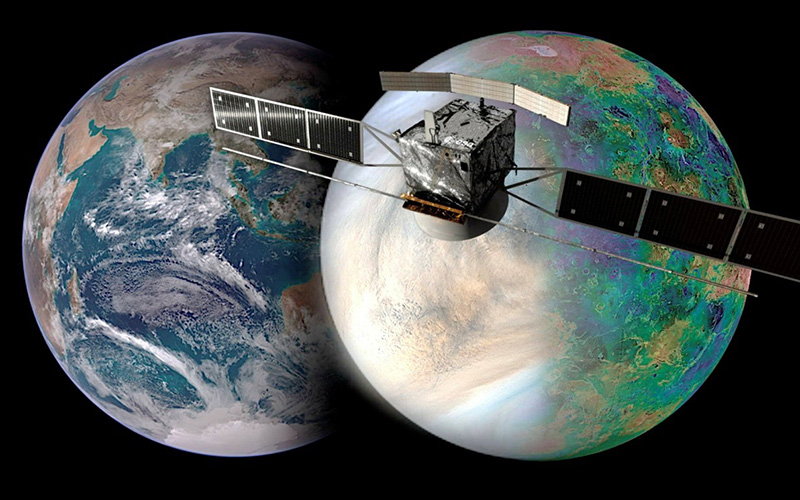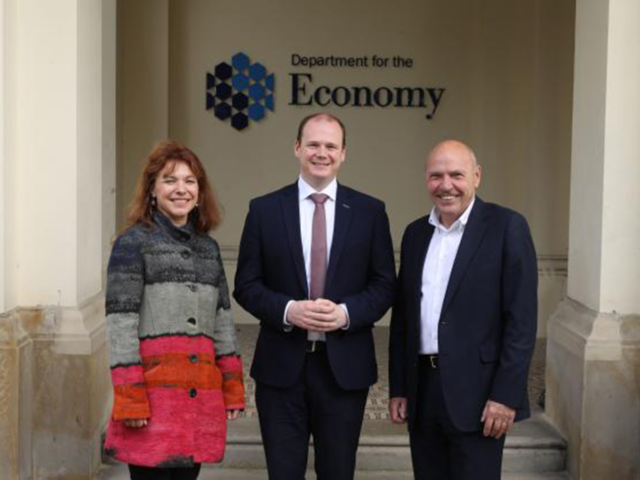James Holmes, an atmospheric scientist at The Open University (OU), has been selected as one of six European scientists to represent the science interests of the European Space Agency (ESA) in an international coordination of Venus science to be performed by three missions in the 2030s.
The Venus Science Coordination group ‘VeSCoor’ is a newly established joint committee between the European Space Agency and NASA to identify new scientific approaches and synergies among the missions to Venus and to suggest studies to enhance their overall scientific return.
James, who undertakes his research in the OU’s Atmospheric Research and Surface Exploration group said: “The atmosphere and surface of Venus still contains many mysteries which to this day puzzle scientists. My background in investigating the atmosphere of Mars through combining computer models and satellite observations has enhanced my interest in utilising similar techniques for other planetary atmospheres such as Venus.”
“It is an honour to have been selected as a member of the ESA VeSCoor team who will work closely with NASA colleagues. As an early career scientist, this is a great opportunity to build new collaborations with international researchers and learn about new ideas and techniques to study the atmosphere of Venus.“
A new era of Venus research investigation has commenced thanks to the selection of three complementary Venus missions (ESA’s Medium-class mission EnVision and NASA’s two Discovery missions, VERITAS and DAVINCI) planned to visit Venus in the next 10-15 years.
James continued: “The instruments on the upcoming missions to Venus will provide in many respects a fantastic blend of different observations and techniques that our team will aim to pull together as much as possible and identify synergistic studies to provide maximum science return. I very much look forward to finding out more about all the different instruments and am excited to be involved with strategising future observations that will help us to learn in much greater detail the surface and atmosphere of Venus.”
James is currently a UK Space Agency research fellow and has pioneered chemical data assimilation for Mars, a technique that combines spacecraft observations of Mars with a climate model, similar to weather forecasting techniques on Earth.
Manish Patel, who leads the OU Atmospheric Research and Surface Exploration group, said: “Being selected to be part of this international group of US and European experts is a tremendous achievement by James, and he will have the chance now to influence the future of Venus science and exploration. James will be working at the interface between three major space missions to Venus which will take place over the next decade, and help ensure that world-leading science is returned from these missions. He is a credit to fantastic research being done here at the OU.”
Julie Black, Director for Discovery and Sustainability at the UK Space Agency, said: “It is great to see a UK Space Agency-funded research fellow being selected as a member of the ESA VeSCoor team. James has mostly been investigating Mars in his Fellowship, and this achievement shows that research doesn’t happen in a vacuum. We are excited for academics to build cross-planetary expertise, and James’ achievement shows that our investments in Mars Exploration Science are benefiting wider Space Science.”




